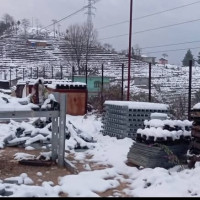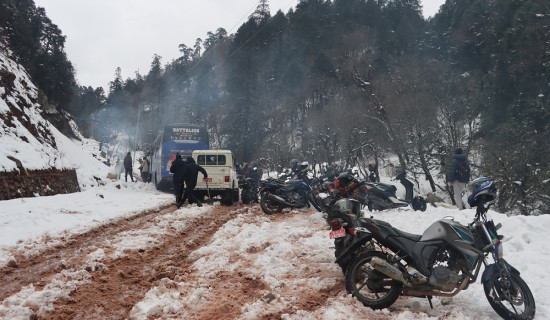- Saturday, 24 January 2026
Building Planned Cities
Nepal is one of the fastest urbanising countries in the world, which stands at a critical juncture of development. Urbanisation requires important criteria, including infrastructure and services, open space, population density, and economic viability. However, these requirements are not met when several human settlements are delineated as new urban areas haphazardly. Due to the lack of proper planning, urbanisation has led to widespread challenges that threaten human well-being and the environment. A flow in informal settlements has accompanied rapid urban growth. Many people do not have access to basic things, including housing, clean water, and sanitation. These are violations of fundamental human rights. The existing urban crowd reflects an absence of foresight in planning, policy, and implementation. The situation is further compounded by an unfair and ineffective land tenure system, which hinders equitable access to resources and opportunities.
Unplanned urbanisation is not affecting our country but is a growing issue across the Asia-Pacific region. Cities are expanding without the infrastructure and governance needed to support their populace. The unplanned urban areas suffer inequality, environmental degradation, and heightened vulnerability to disasters. The cities in Nepal are built without considering topography, climate, or cultural heritage and are now paying the price through frequent flooding, haphazard construction, and the loss of green spaces. One of the great examples of unplanned urbanisation is the Kathmandu Valley. Due to this, the valley has faced an overcrowded population, pollution, increased poverty, and has put people at risk from various types of disasters.
The government introduced a strategy to build disaster-resilient cities and promote balanced urban development. However, these efforts often lack coordination, which hampers their implementation. Cities' residents are unprepared for disasters, and the government lacks the funding, institutions, and cooperation needed for fair and safe urban development. The managed cities have the potential to drive innovation, foster economic growth, and provide various opportunities, including employment, education, and health services. Ensuring that such development is inclusive, balanced, and sustainable is essential. The concerned authorities must move beyond rhetoric and embrace meaningful long-term planning.
Investment in cities should focus on green and inclusive spaces that serve everyone. The development plans of cities should incorporate affordable housing, integrated public transport, sustainable infrastructure, and renewable energy. The strategy should include preparation to cope with the impacts of climate change. It is essential to have climate resilience and early warning systems. Another major problem is the growing digital divide between urban and rural areas. Access to technology and the internet is a prerequisite for equal access to education, health, commerce, and governance. If the gap is widened, the country faces the risk of reinforcing old patterns of exclusion and inequality.
Nepal has taken encouraging steps by engaging in regional dialogue and cooperation. The country is hosting 'Sagarmatha Sambad' to address climate change and urban development, which shows a willingness to be part of the solution. Such goodwill should be coordinated with well-funded action. The national policies should be backed by local implementation, and communities should be empowered to participate in planning their cities' future. As no country can solve the problems of unplanned urbanization, regional collaboration is essential. The Asia-Pacific countries can build resilience, share resources, and drive sustainable development only by working together.








-square-thumb.jpg)





-original-thumb.jpg)


